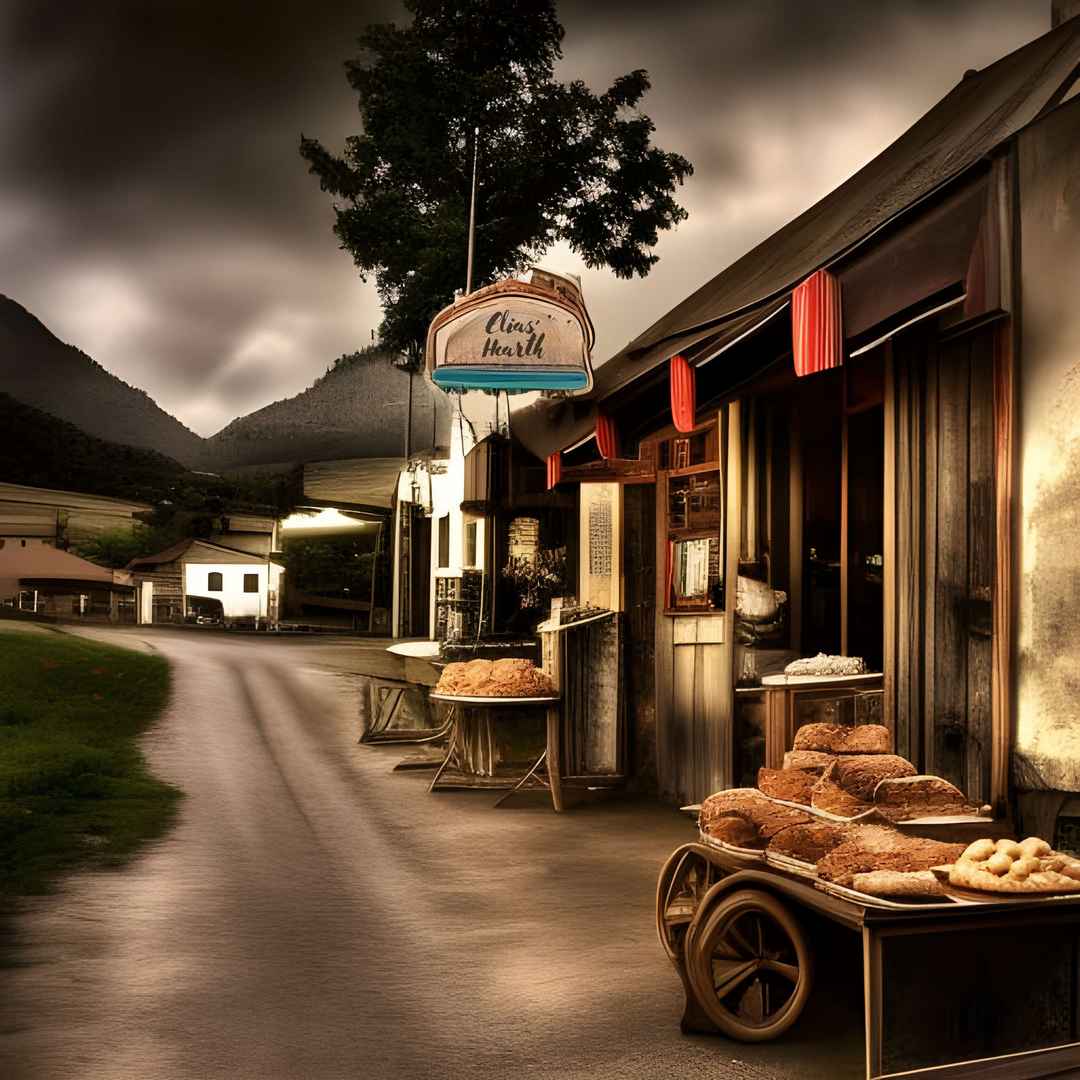Once upon a time, in a picturesque village nestled between rolling hills and lush meadows, there lived a humble baker named Elias. He was known far and wide for his magical touch with bread, pies, and pastries. His bakery, “Elias’ Hearth,” was the heart of the village, a place where the delicious aroma of freshly baked goods wafted through the air, beckoning hungry souls from miles around.
The village of Meadowbrook had always been a place of peace and plenty. Its residents enjoyed the beauty of nature and the tranquility of rural life. Elias, a portly man with a twinkle in his eye and a warm smile, had been the village baker for as long as anyone could remember. He had learned the art of baking from his grandmother, who had passed down age-old recipes and secret techniques.
Life in Meadowbrook was idyllic until an unexpected event disrupted the serenity. A devastating drought struck the region, causing crops to wither and water sources to run dry. The once-green meadows turned into parched earth, and the villagers faced the harsh reality of scarcity. Fear and uncertainty crept into their hearts as they saw their food stores diminish.
Elias, ever the compassionate soul, couldn’t bear to see his fellow villagers suffer. He knew that his beloved bakery could make a difference during these trying times. With unwavering determination, he decided to put his baking skills to use like never before.
Each morning, well before the sun graced the horizon, Elias donned his apron and set to work. His bakery became a hive of activity as he mixed, kneaded, and shaped dough into loaves of bread, trays of pastries, and pies filled with fruits that he had preserved from earlier harvests. The aroma of freshly baked goods began to spread even further, not just tempting the villagers but also comforting their worried hearts.
As the village awoke to the scent of warm bread and sweet pastries, Elias opened his bakery’s doors earlier than ever. The villagers, many of whom had come to rely on Elias for sustenance, lined up patiently outside. With a kind word and a generous smile, he handed out his freshly baked creations.
Elias refused to take any payment for his goods. He believed that in these challenging times, the currency of kindness was more valuable than any coin. His act of generosity set an example for the entire village, inspiring others to share what they could. Some villagers brought vegetables from their gardens, while others shared their skills as blacksmiths, seamstresses, and carpenters.
As the days turned into weeks, Elias’ bakery became a symbol of hope and unity in Meadowbrook. The villagers began to work together to find solutions to their problems. They dug a communal well and set up irrigation systems to conserve water. They also explored new ways of growing crops that could withstand drought.
Elias didn’t stop at providing bread; he started teaching the villagers how to bake. His bakery became a school of sorts, where young and old alike learned the art of breadmaking. The simple act of kneading dough and watching it rise brought comfort and purpose to their lives.
One day, after much effort, the villagers discovered an underground spring that could provide them with fresh water. Their collective determination, fostered by Elias’ selflessness, had led to a breakthrough. With water flowing once more, the meadows began to recover, and life in Meadowbrook slowly returned to normal.
Elias’ bakery continued to thrive, but it had transformed into more than just a place for baked goods. It had become a symbol of resilience, community, and the indomitable spirit of the villagers. The lessons they had learned during the tough times stayed with them, strengthening the bonds of friendship and cooperation.
The drought eventually ended, and the village flourished once more. Elias’ acts of kindness and the unity of the villagers had seen them through their darkest days. They knew that it was the human spirit, as nourishing as the bread from Elias’ Hearth, that had sustained them.
Years passed, and Elias continued to bake bread and pastries with the same love and dedication. The villagers, young and old, still gathered in his bakery, not just for food but to share stories of those challenging times. And Elias, the baker who had fed a village during tough circumstances, remained the heart and soul of Meadowbrook, a beacon of warmth and generosity in their lives.
In the end, it wasn’t just about the bread he baked; it was about the love, resilience, and compassion that he had shared when it was needed most. Meadowbrook remained a place of peace and plenty, where the lessons of unity and kindness had taken root, ensuring that the village would thrive for generations to come.





